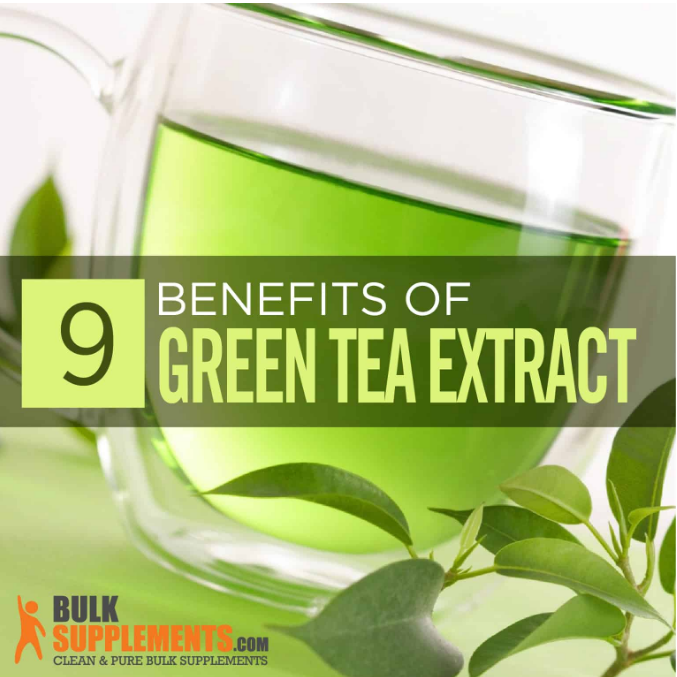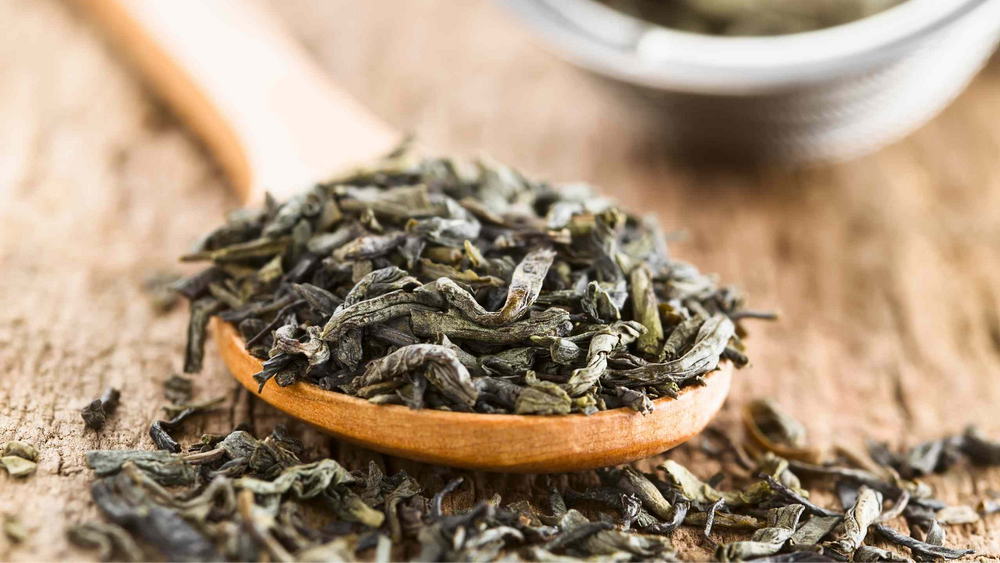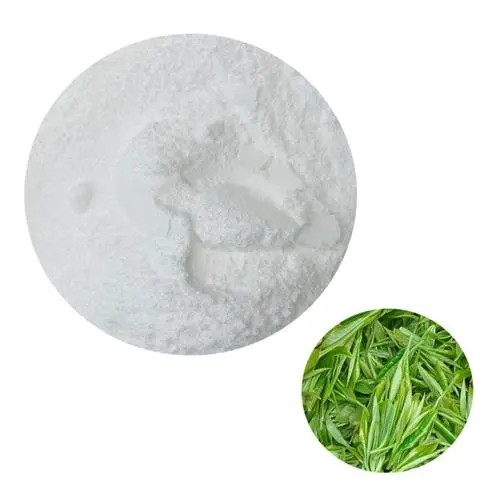Content Menu
● Composition of Green Tea Leaf Extract
● Potential Health Benefits
● Safety Considerations
● Safe Usage Guidelines
● Conclusion
Green tea, derived from the leaves of the Camellia sinensis plant, has been consumed for thousands of years, particularly in Asian cultures. In recent decades, its popularity has surged worldwide, not just as a beverage but also in the form of concentrated extracts. These extracts, often marketed as dietary supplements, have gained attention for their potential health benefits. However, as with any concentrated form of a natural product, questions arise about its safety and efficacy. This article delves into the world of green tea leaf extract, exploring its composition, potential benefits, and safety considerations.

Composition of Green Tea Leaf Extract
Green tea leaf extract is a concentrated form of the bioactive compounds found in green tea leaves. The primary components that contribute to its potential health effects are polyphenols, particularly a class of compounds called catechins. The most abundant and well-studied catechin in green tea is epigallocatechin gallate (EGCG), which is believed to be responsible for many of the extract's purported health benefits.
Other components of green tea leaf extract include:
1. Caffeine: Although present in lower amounts than in coffee, green tea does contain caffeine, which can have stimulant effects.
2. L-theanine: An amino acid that may promote relaxation and potentially counteract some of the stimulant effects of caffeine.
3. Other polyphenols: Including flavonoids and phenolic acids, which contribute to the antioxidant properties of the extract.
4. Vitamins and minerals: Such as vitamin C, vitamin B complex, and various minerals in trace amounts.
When green tea leaves are processed into an extract, these compounds become more concentrated, potentially amplifying both their beneficial effects and any associated risks.
Potential Health Benefits
Green tea leaf extract has been the subject of numerous studies investigating its potential health benefits. While research is ongoing, and many findings are preliminary or inconclusive, several areas of potential benefit have emerged:
Antioxidant Properties: The high concentration of catechins in green tea extract provides potent antioxidant effects. These compounds may help protect cells from damage caused by free radicals, potentially reducing the risk of various chronic diseases.
Weight Management: Some studies suggest that green tea extract may boost metabolism and increase fat burning, particularly when combined with exercise. However, the effects are generally modest and may vary among individuals.
Cardiovascular Health: Regular consumption of green tea or its extract has been associated with improvements in various markers of cardiovascular health. This includes potential reductions in LDL cholesterol levels and improvements in blood flow.
Cognitive Function: The combination of caffeine and L-theanine in green tea extract may have positive effects on brain function, including improved mood, alertness, and cognitive performance.
Skin Health: The antioxidant properties of green tea extract have led to its inclusion in many skincare products. Some research suggests it may help protect against UV damage and signs of skin aging when applied topically or consumed orally.
Cancer Prevention: While research is ongoing and results are mixed, some studies have explored the potential of green tea extract in reducing the risk of certain types of cancer. However, more research is needed to draw definitive conclusions.
Blood Sugar Regulation: Some evidence suggests that green tea extract may help improve insulin sensitivity and reduce blood sugar levels, which could be beneficial for individuals with or at risk of type 2 diabetes.
It's important to note that while these potential benefits are promising, many studies have been conducted in laboratory settings or with small groups of participants. More large-scale, long-term human studies are needed to fully understand the effects of green tea leaf extract on health.

Safety Considerations
While green tea and its extract are generally considered safe for most people when consumed in moderate amounts, there are several safety considerations to keep in mind:
Caffeine Sensitivity: Green tea extract contains caffeine, which can cause side effects such as insomnia, nervousness, increased heart rate, and nausea in sensitive individuals or when consumed in large amounts.
Liver Concerns: There have been rare reports of liver damage associated with the use of green tea extract supplements. While the exact mechanism is not fully understood, it's thought that high doses of catechins, particularly EGCG, may be responsible.
Iron Absorption: The catechins in green tea can interfere with iron absorption. This is primarily a concern for individuals with iron deficiency anemia or those at risk of iron deficiency.
Drug Interactions: Green tea extract can interact with various medications, including blood thinners, certain heart medications, and some antibiotics. It's essential to consult with a healthcare provider before using green tea extract supplements, especially if you're taking any medications.
Pregnancy and Breastfeeding: While moderate consumption of green tea is generally considered safe during pregnancy and breastfeeding, high doses of green tea extract may not be recommended due to its concentrated caffeine and catechin content.
Dosage Concerns: Unlike brewed green tea, which is consumed in limited quantities, green tea extract supplements can provide very high doses of catechins. This concentrated form may increase the risk of adverse effects.
Individual Variability: As with any supplement, individual responses to green tea extract can vary. Some people may experience benefits, while others may be more susceptible to side effects.
Quality and Purity: The quality and purity of green tea extract supplements can vary widely. Some products may contain contaminants or inconsistent amounts of active compounds.

Safe Usage Guidelines
To maximize the potential benefits of green tea leaf extract while minimizing risks, consider the following guidelines:
1. Start with Low Doses: If you're new to green tea extract supplements, start with a low dose and gradually increase it if well-tolerated.
2. Choose Reputable Brands: Select supplements from well-known, reputable manufacturers that follow good manufacturing practices and provide third-party testing results.
3. Be Aware of Caffeine Content: If you're sensitive to caffeine, look for decaffeinated green tea extract or consider taking it earlier in the day to avoid sleep disturbances.
4. Monitor for Side Effects: Pay attention to how your body responds to green tea extract. If you experience any adverse effects, discontinue use and consult a healthcare provider.
5. Avoid on an Empty Stomach: Taking green tea extract with food may help reduce the risk of gastrointestinal discomfort and potentially mitigate some of the concerns related to liver effects.
6. Stay Hydrated: Green tea extract can have a mild diuretic effect, so ensure you're drinking plenty of water throughout the day.
7. Cycle Usage: Some experts recommend cycling the use of green tea extract, such as taking it for a few weeks, then taking a break, to potentially reduce the risk of adverse effects from long-term, continuous use.
8. Consider Whole Green Tea: For many people, drinking brewed green tea may be a safer and more enjoyable way to obtain the benefits of green tea compounds compared to concentrated extracts.
9. Consult Healthcare Providers: Before starting any new supplement regimen, especially if you have pre-existing health conditions or are taking medications, consult with a healthcare provider.

Conclusion
Green tea leaf extract offers a concentrated source of potentially beneficial compounds found in green tea. While research has shown promising results in various areas of health, including antioxidant effects, weight management support, and potential cardiovascular benefits, it's crucial to approach its use with caution and awareness.
The safety of green tea leaf extract largely depends on factors such as dosage, individual health status, and the quality of the supplement. When used responsibly and in moderation, many people can safely incorporate green tea extract into their health regimen. However, the concentrated nature of these supplements means that they can also pose risks, particularly when consumed in high doses or by individuals with certain health conditions.
As with any dietary supplement, it's essential to approach green tea leaf extract as part of a holistic approach to health. It should not be viewed as a magic bullet or a substitute for a balanced diet and healthy lifestyle. Instead, it can be considered as one potential tool in a broader strategy for maintaining overall health and well-being.
Ultimately, the decision to use green tea leaf extract should be made in consultation with a healthcare provider, taking into account individual health status, medications, and personal health goals. By staying informed, choosing high-quality products, and using them responsibly, individuals can potentially harness the benefits of green tea extract while minimizing risks.
Remember, while green tea has been consumed safely for thousands of years, the concentrated extract form is a relatively new development. As research continues, our understanding of its long-term effects and optimal usage will likely evolve. Staying informed about the latest research and recommendations is key to making educated decisions about incorporating green tea leaf extract into your health routine.
In the end, whether through a cup of brewed green tea or a carefully chosen supplement, the potential benefits of green tea compounds can be a valuable addition to a healthy lifestyle. As with all aspects of health, balance, moderation, and personalized approach remain the cornerstones of safe and effective use.































